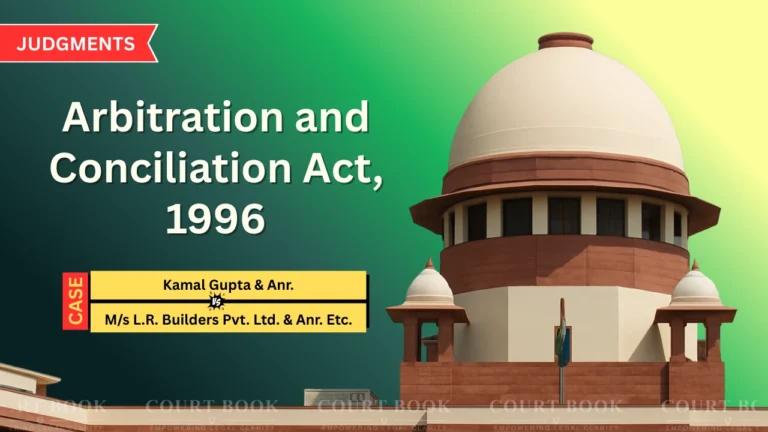The Supreme Court has ruled that non-signatories to an arbitration agreement cannot be permitted to attend arbitration proceedings once the court has appointed an arbitrator and disposed of the case under Section 11(6) of the Arbitration and Conciliation Act, 1996.
This decision came in the dispute between Kamal Gupta & another and M/s L.R. Builders Pvt. Ltd. & others. The court clarified that arbitration is only between parties to the agreement, and Section 35 of the Act makes the award binding only on those parties or persons claiming under them.
Read also:- Supreme Court Declines to Interfere with Allahabad High Court's Order on Land Dispute Injunction
The bench of Justices P.S. Narasimha and Atul S. Chandurkar observed:
“Permitting a stranger to remain present in the arbitration proceedings, especially when the award would not bind them, is unknown to law.”
The court held that once the arbitrator is appointed, the court becomes functus officio and cannot entertain fresh applications in the disposed case. It also noted that allowing non-signatories to attend breaches Section 42A of the Act, which mandates confidentiality in arbitral proceedings.
Read also:- Protection of Borrowers under the SARFAESI Act Legal Provisions Clarified by Courts
Setting aside the Delhi High Court’s order allowing non-signatories to be present, the Supreme Court termed the applications an “abuse of process” and imposed costs of ₹3 lakh on the respondents, payable to the Supreme Court Advocates-On-Record Association within two weeks.
Case Title: Kamal Gupta & Anr. vs. M/s L.R. Builders Pvt. Ltd. & Anr. Etc.
Jurisdiction: Civil Appellate Jurisdiction
Appeal Numbers: Civil Appeals arising out of SLP (C) Nos. 4775-4779 of 2025
Date of Judgment: 13 August 2025















